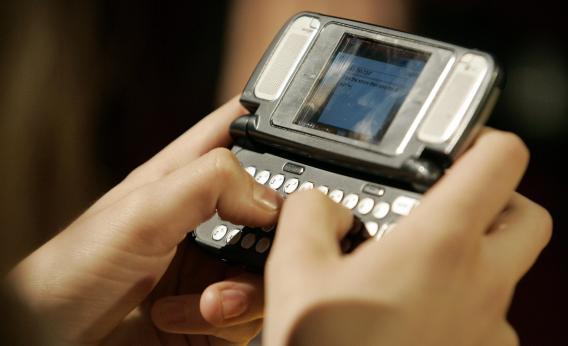As Werner Herzog and others have made abundantly clear, texting while driving is a very stupid activity that could end in injury, death, and/or criminal and civil liability for the texter. But what about the person on the other end of that text message? Do they share any responsibility for accidents that result from texting while driving? A recent decision out of a New Jersey appellate court argues that, sometimes, the answer is yes.
In 2009, a New Jersey teenager named Kyle Best was driving and texting when he veered into the opposite lane and collided with a motorcycle occupied by a married couple named David and Linda Kubert. The Kuberts, both of whom lost a leg, sued Best. (At the time, New Jersey state law did not include significant criminal penalties for causing an accident because of driving while texting.) But they also sued Shannon Colonna, a teenage girl with whom Best had been texting at the time of the crash, claiming that she also bore some responsibility for the accident. The trial judge dismissed the Kuberts’ claims against Colonna; the Kuberts appealed.
Last month, the appeals court issued its decision, and it was an interesting one. The appeals court upheld the trial court’s decision to dismiss the case against Shannon Colonna, saying that the Kuberts failed to prove that Colonna knew Best was driving a car during their text exchanges. But the appeals court also found that, in the abstract, the Kuberts’ argument held some merit, and that “a person sending text messages has a duty not to text someone who is driving if the texter knows, or has special reason to know, the recipient will view the text while driving.” Reasoning that an actual passenger in a car might be held liable for an accident if she urged a driver “to take his eyes off the road and to look at a distracting object,” the appeals court applied similar logic to remotely texting an easily distractable driver:
The sender should be able to assume that the recipient will read a text message only when it is safe and legal to do so, that is, when not operating a vehicle. However, if the sender knows that the recipient is both driving and will read the text immediately, then the sender has taken a foreseeable risk in sending a text at that time. The sender has knowingly engaged in distracting conduct, and it is not unfair also to hold the sender responsible for the distraction.
This was a civil case, and by “hold the sender responsible,” the appellate judges were talking about civil penalties, not criminal ones. But as Darren Gelber noted on Jersey Justice Monitor, it’s not hard to imagine how this decision might affect criminal prosecutions. A prosecutor looking to make a name for himself could theoretically use the appellate court’s logic to justify charging somebody like Shannon Colonna as an accessory to reckless driving. Would that charge actually stand? Who knows. But it would get a lot of attention, and would make clear that New Jersey takes distracted driving very, very seriously.
This is a controversial decision—for one thing, it’s hard to see how a sender can be expected to know that the recipient will read the message immediately, unless the message is something like READ THIS IMMEDIATELY, EVEN THOUGH YOU’RE DRIVING: LOL!—and it may well be appealed to the state Supreme Court. And as Gelber noted, a New Jersey state lawmaker has already announced that she will introduce a bill that would prevent texters in Shannon Colonna’s position from being sued for their actions. For now, though, you’re courting a possible lawsuit if you text someone who’s driving in New Jersey.
Crime is Slate’s crime blog. Like us on Facebook, and follow us on Twitter @slatecrime.
